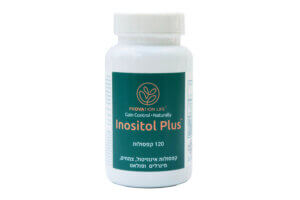
What is Polycystic Ovarian Syndrome (PCOS)?
Polycystic Ovarian Syndrome is a condition where disruptions in the release of hormones that regulate the menstrual cycle can trigger irregular periods and potential fertility issues. This condition affects about 10% of women in their fertile years, causing not just infertility but also contributing to various other health concerns. It is vital for those living with PCOS to have a grasp of its symptoms, diagnosis, and effective management strategies.
While the exact cause of PCOS is not yet fully understood, it is believed to come mainly from hormone imbalances, which can be influenced by lifestyle factors such as diet and stress, genetics, and insulin resistance. PCOS shows up as the presence of small cysts on the ovaries. These cysts are immature follicles that did not develop properly and failed to ovulate.
Impact of PCOS on Daily Life
The effects of PCOS can vary significantly among women, but typically they can include;
- Irregular, sporadic, or prolonged menstrual cycles due to hormonal imbalances that disrupt the usual ovulation process.
- Excess levels of androgens (male hormones) which can cause effects such as increased facial and body hair, severe acne, and hair thinning.
- Weight gain and obesity, often made worse by insulin resistance.
- Infertility due to irregular or absent ovulation
- Metabolic syndrome, increasing the likelihood of conditions like hypertension, elevated blood sugar levels, and abnormal cholesterol levels. These elevate the risk of heart disease and type 2 diabetes significantly.
- Sleep apnea
- Anxiety, depression, and other mental health complications, which may be triggered by the physical manifestations of PCOS combined with the strain of managing a chronic illness.
How is Polycystic Ovarian Syndrome Diagnosed?
There is no single way to diagnose PCOS because there isn’t a single definitive test for confirmation. Instead, a typical diagnostic consult includes a combination of observations, blood tests, and imaging. The commonly accepted criteria for diagnosing PCOS are the Rotterdam criteria, which necessitate two out of the following three characteristics;
- Irregular Menstrual Cycles: Having fewer than eight menstrual cycles in a year or cycles that extend beyond 35 days.
- Hyperandrogenism: Elevated androgen levels in blood tests or signs like hirsutism, acne, and hair thinning.
- Polycystic Ovaries: The presence of 12 or more immature follicles on one or both ovaries is detected with an ultrasound examination.
It is important to rule out conditions that exhibit similar symptoms, such as thyroid disorders, hyperprolactinemia, and adrenal hyperplasia.
Living Better with PCOS
Although there is no cure for PCOS, there are various management approaches aimed at easing symptoms and mitigating long-term complications. These strategies include lifestyle modifications, medications, and the possible need for surgical procedures in more serious cases.
Lifestyle Modifications
Sustainable weight loss through a well-rounded diet and regular exercise can significantly ease PCOS symptoms. For overweight or obese women, losing as little as 5-10% of body mass can help balance menstrual cycles, improve insulin sensitivity, and decrease the levels of android hormones. As part of the weight-loss program, following a diet low in processed carbohydrates and rich in fiber can aid in managing insulin levels. Including proteins, good fats, fruits, and vegetables is also advantageous.
Medications
Options like birth control pills, patches, or vaginal rings can assist in regulating cycles, reducing male hormone levels, and controlling issues like acne and excessive hair growth. Metformin is a medication commonly used for type 2 diabetes that can enhance insulin resistance and lower insulin levels to support menstrual cycles.
Drugs like Aldactone that contain spironolactone can block the effects of androgen, lower male hormone levels, and alleviate symptoms such as unwanted hair growth and acne.
Women with PCOS aiming to get pregnant can also use medications like Femara or Teva-Letrazole to stimulate ovulation. Letrozole blocks the action of an enzyme that causes a reduction in estrogen levels. This can offset the excess levels of male hormones and restore balance.
Introducing a new, natural treatment for PCOS
Inositol Plus takes a new approach to curbing the symptoms of PCOS. Inositol is an OTC supplement that doesn’t need a doctor’s prescription. It contains a blend of ten natural substances that work together to rebalance the body’s levels of androgen and estrogen hormones. The components include Myo-inositol, chromium, cinnamon, red yeast, magnesium, potassium, zinc, folic acid, turmeric, and Coenzyme Q10 (CoQ10).
The key ingredient is Myo-inositol, which used to be called vitamin B8. It is found in high concentrations in the brain. It plays a crucial role in neurotransmitter production and influences hormone functions. Inositol Plus supplement couples it with berberine, a compound derived from the berberis plant, which has demonstrated positive effects on hormone levels when combined with Myo-inositol. Coenzyme Q10 (CoQ10) acts as an antioxidant that can enhance egg quality, increasing the probability of successful fertilization and maturation of a fertilized egg. Folic acid is vital for overall health and is especially beneficial for women aiming to conceive. These four are all combined to improve egg production, maturation, and fertility.
Other important benefits are coming from the ingredients of Inositol Plus. Myo-inositol plays a key role in insulin signaling, while chromium boosts the effectiveness of insulin and may support better blood sugar regulation. Cinnamon can help to reduce high blood sugar levels and enhance insulin sensitivity. Also, magnesium is essential for glucose metabolism, potentially aiding in reducing insulin resistance and the risk of type 2 diabetes.
Turmeric (curcumin), potassium, and Red yeast reduce the risk of cardiovascular diseases. These components have been incorporated based on years of research indicating their ability to enhance the efficacy of Myo-inositol. When combined, these ingredients promote a more balanced hormonal environment for women dealing with PCOS.
Conclusion – There’s a Shining Light Ahead for Women Living With PCOS
In summary, while living with PCOS presents problems that can be frustrating, we believe that understanding its symptoms, diagnosis procedures, and available management options will empower you to take charge of your well-being. By making choices and accessing suitable care, women living with PCOS can enhance their quality of life while minimizing long-term risks.

















